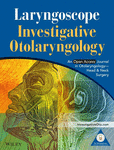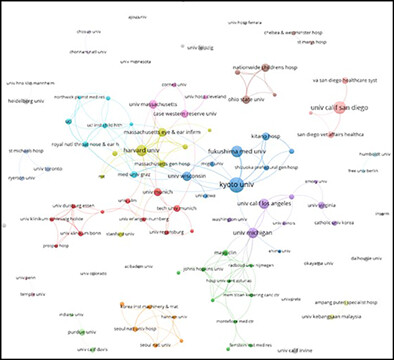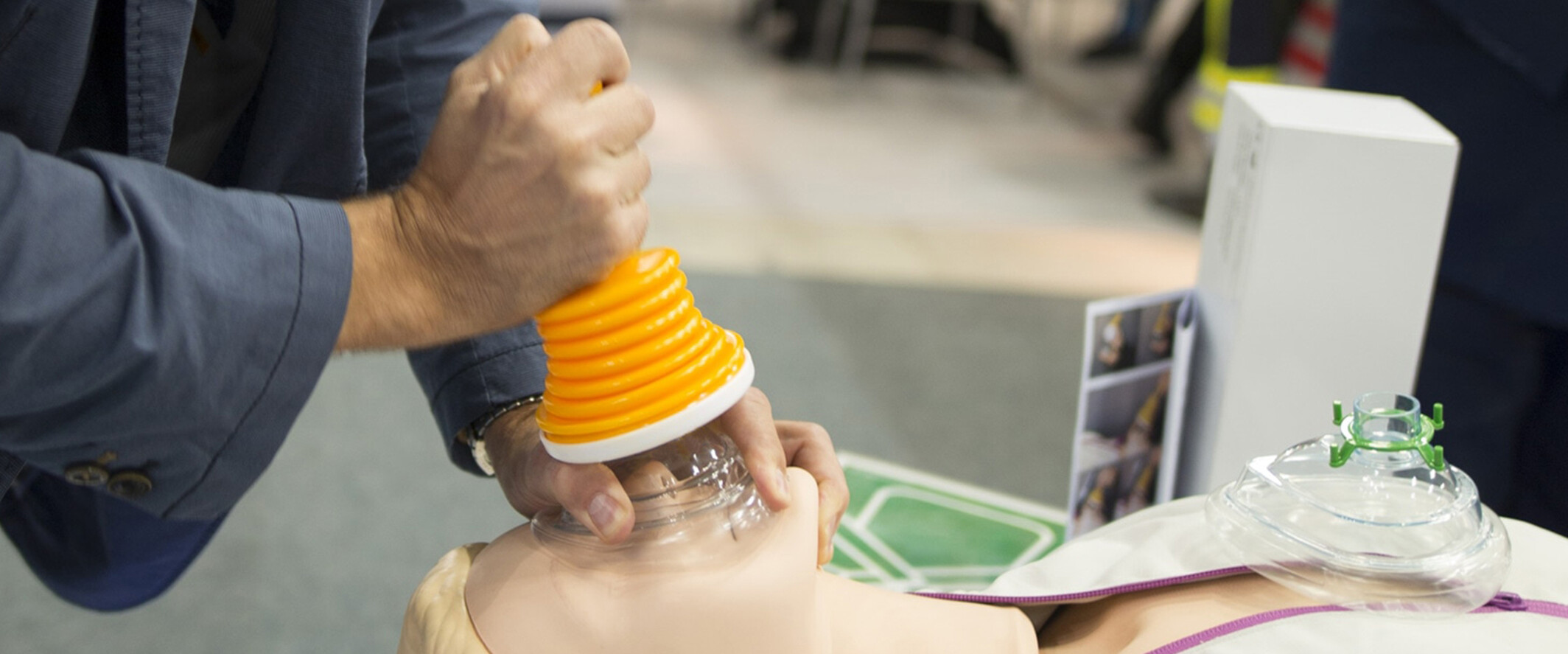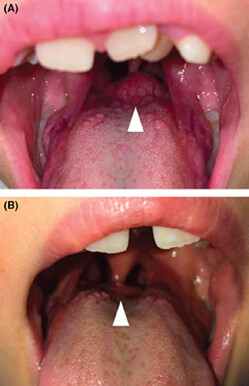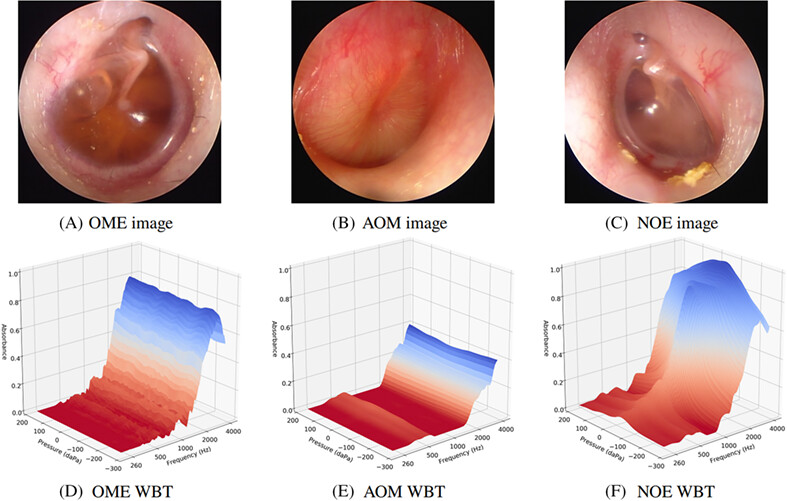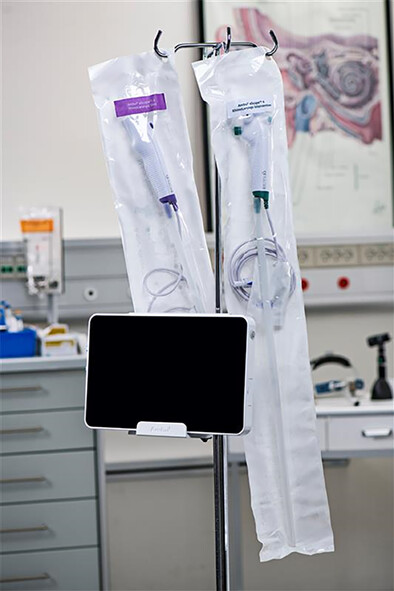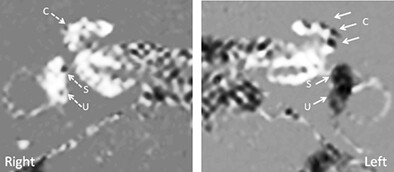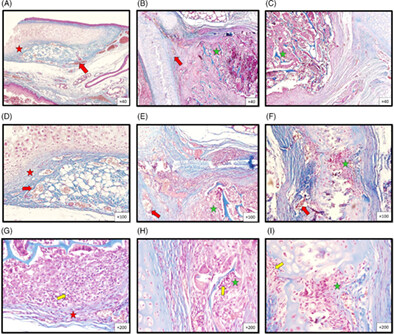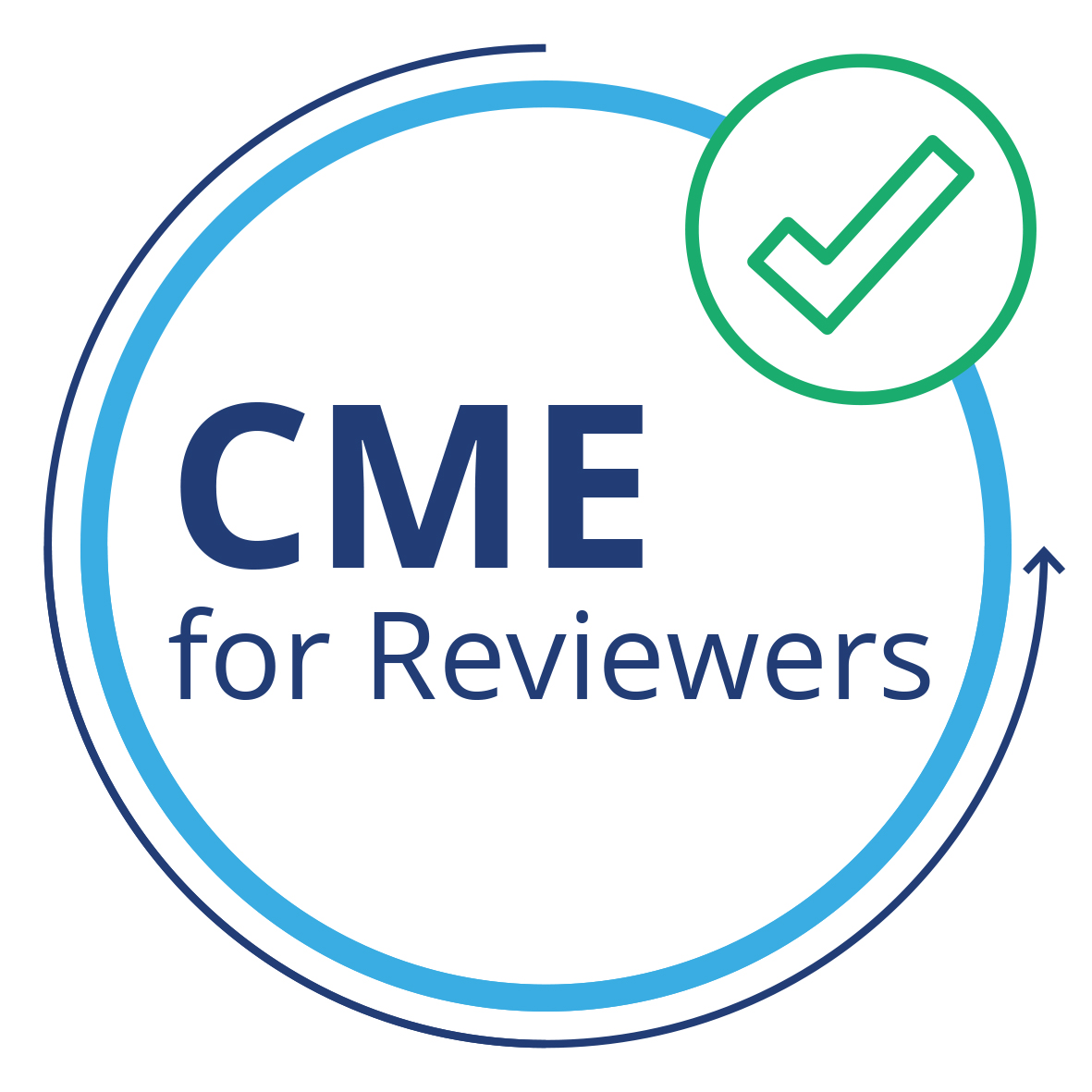Journal list menu
Export Citations
Download PDFs
ISSUE INFORMATION
ORIGINAL RESEARCH
Tissue engineering in otorhinolaryngology: A knowledge-based analysis
- First Published: 19 December 2023
Unique clinical and prognostic behavior of patients diagnosed with combined exophytic and inverted papilloma histologic subtype
- First Published: 19 December 2023
Each subtype of sinonasal papilloma has unique behavior and recurrence rates after surgical resection. There is a subpopulation of patients with mixed tumor containing inverted and exophytic papilloma which are older at presentation and are more likely to have recurrent disease.
LETTERS TO THE EDITOR
A response to a single cadaver study assessing the efficacy of two commercially available devices for airway foreign body relief
- First Published: 19 February 2024
ORIGINAL RESEARCH
Impact of social determinants of health on access to rhinology care and patient outcomes: A pilot study
- First Published: 09 December 2023
We construct a social deprivation index and utilize an area deprivation index to study social determinants of health and rhinology patient experiences. Worse social deprivation is associated with difficulties obtaining the most basic of rhinology care—saline rinses, as well as increased severity of nasal/sinus symptoms in an urban, underserved, majority-Black population.
Can ChatGPT help patients answer their otolaryngology questions?
- First Published: 09 December 2023
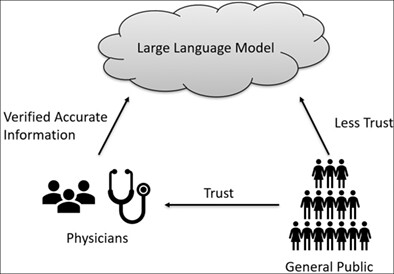
ChatGPT is highly accurate in responding to questions posed by the public with regards to Otolaryngology from a physician standpoint. Public reviewers were not fully confident in believing the AI model, with subjective concerns related to less trust in AI answers compared to physician explanation. Larger evaluations with a representative public sample and broader medical questions should immediately be conducted by appropriate organizations, governing bodies, and/or governmental agencies to instill public confidence in AI and ChatGPT as a medical resource.
Living with dizziness impacts health-related quality of life among older adults
- First Published: 21 December 2023
Symmetrical placement of bilateral percutaneous bone-anchored hearing systems via guide-marker
- First Published: 14 December 2023

Current recommendations for BAHS implant placement are useful but they may be limited for the precise implant positioning and does not ensure bilateral symmetry in patients with large facial asymmetry or those with craniofacial malformations, who show alteration or absence of some anatomical structures. We propose a novel technique for symmetrical placement of bilateral BAHS, employing a simple guide-marker that may be easily replicable and adopted in the surgical routine. It was effective to estimate implant placement and symmetry in 12 subjects eligible for bilateral BAHS surgery, confirmed by the 3D image reconstruction. To the best of our knowledge, this is the first study investigating the use of a technique employing the use of a guide-marker to improve symmetry in bilateral BAHS surgery, aiming to improve cosmetic appearance of bilateral BAHS users and therefore their effectiveness in daily life.
Elevated FVIII levels in hereditary hemorrhagic telangiectasia: Implications for clinical management
- First Published: 14 December 2023
Ossicular joint histopathology in cases of age-related hearing loss
- First Published: 31 January 2024
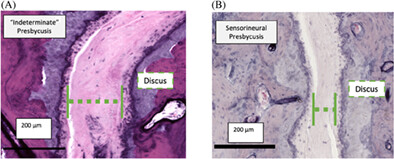
Little is known about age-related changes in the ossicular joints or their contribution to presbycusis. Herein, we performed an otopathologic evaluation of the ossicular joints in cases of presbycusis without a clear sensorineural explanation. We report that IP ears have wider IM and IS joints when compared to ears with sensorineural presbycusis and age-matched controls. Findings point to a potential source of high-frequency conductive hearing loss in a subset of presbycutic ears.
The safety and efficacy of radiofrequency ablation in benign pediatric thyroid disease in the US: An initial case series
- First Published: 10 January 2024
Multi-modal deep learning for joint prediction of otitis media and diagnostic difficulty
- First Published: 08 February 2024
Head and neck ultrasound training improves the diagnostic performance of otolaryngology residents
- First Published: 11 January 2024
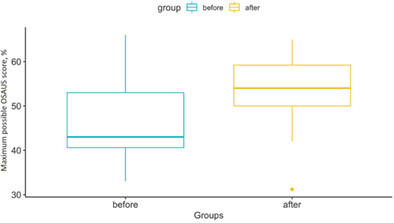
This study examined how a formal ultrasound (US) course for residents affected their outpatient clinic US performance and diagnostic accuracy. We conducted a randomized cross-over trial, where 13 otolaryngologist residents participated in a 6-h formal US course, using the Objective Structured Assessment of Ultrasound Skills (OSAUS) scale on US cases before and after the course. We found a statistically significant difference in the OSAUS score before compared to after the hands-on training (p = .035).
Tracheal A-frame deformity and suprastomal collapse after pediatric tracheostomy
- First Published: 14 December 2023
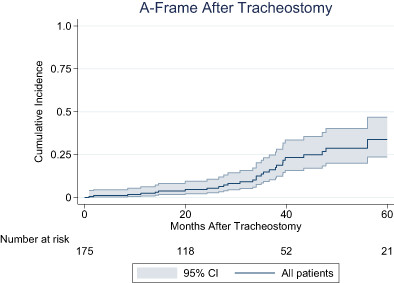
Tracheal A-frame deformity is estimated to occur in 36% of children within 3 years after tracheostomy decannulation. Suprastomal collapse, which approaches 74% at 5 years after tracheostomy, is more common when tracheostomy is placed at a younger age. Surgeons caring for tracheostomy-dependent children should recognize acquired airway obstruction and appropriately monitor these outcomes.
Single-use versus reusable rhinolaryngoscopes for inpatient otorhinolaryngology consults: Resident and patient experience
- First Published: 19 December 2023
Development and evaluation of a new intraoral voice assist device called the voice retriever
- First Published: 30 January 2024
A comparative analysis of laryngeal nerve damage in patients with idiopathic vocal cord paralysis exhibiting different paralytic sides
- First Published: 05 January 2024
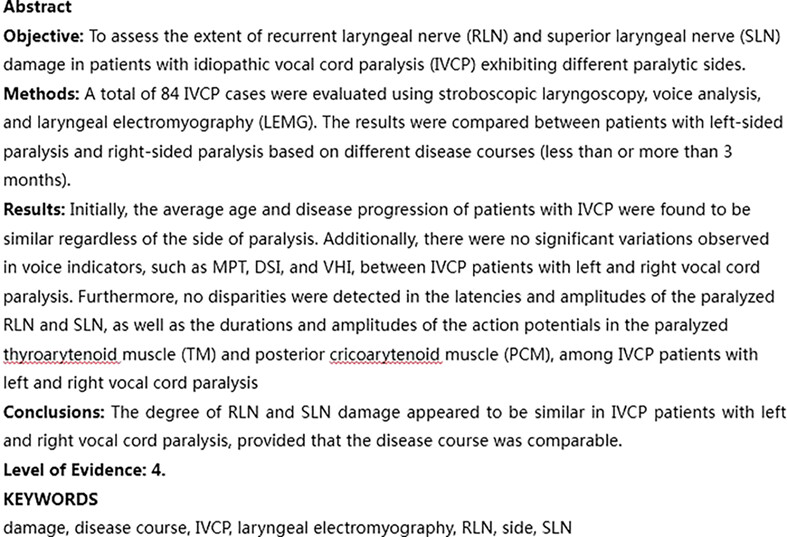
Initially, the average age and disease progression of patients with IVCP were found to be similar regardless of the side of paralysis. Additionally, there were no significant variations observed in voice indicators, such as MPT, DSI, and VHI, between IVCP patients with left and right vocal cord paralysis. Furthermore, no disparities were detected in the latencies and amplitudes of the paralyzed RLN and SLN, as well as the durations and amplitudes of the action potentials in the paralyzed thyroarytenoid muscle (TM) and posterior cricoarytenoid muscle (PCM), among IVCP patients with left and right vocal cord paralysis, so the degree of RLN and SLN damage appeared to be similar in IVCP patients with left and right vocal cord paralysis, provided that the disease course was comparable.
Treatment outcome and prognostic factors of inverted papilloma involving the frontal sinus
- First Published: 26 December 2023
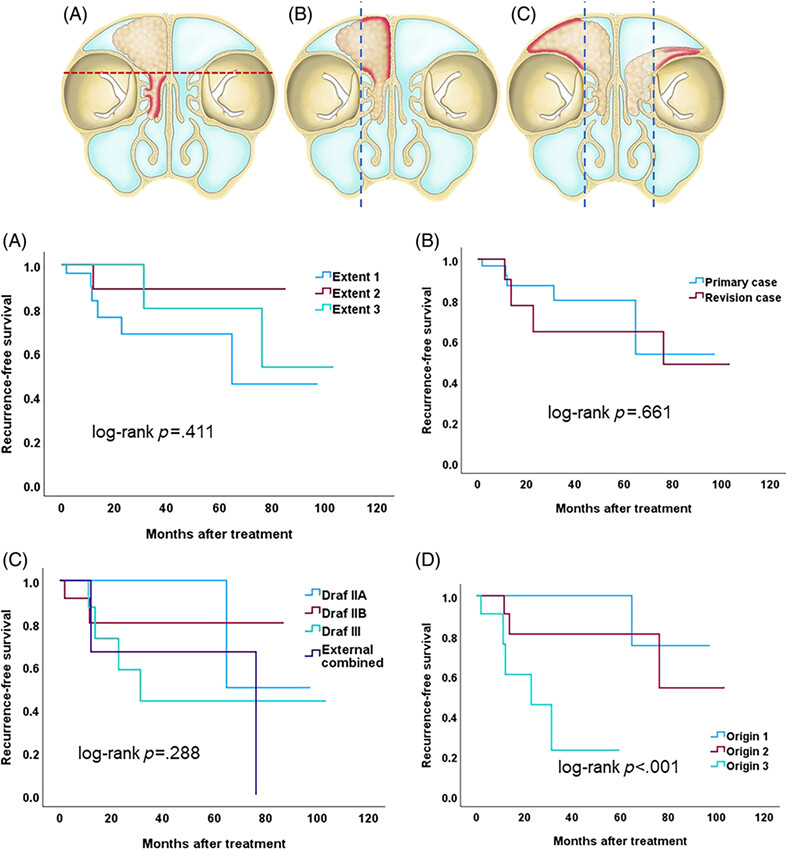
- The recurrence rate of frontal sinus inverted papilloma depends on tumor origin rather than the extent of the tumor.
- In particular, lesions originating from the frontal sinus lateral to the lamina papyracea recur frequently.
- Draf III frontal sinusotomy can achieve patent frontal recess allowing active surveillance.
ACE2 and TAS2R38 receptor expression in pediatric and adult patients in the nasal and oral cavity
- First Published: 18 January 2024
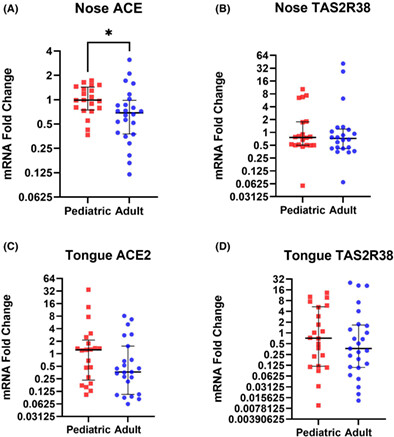
The aim was to investigate differences in ACE2 and bitter taste receptor (TAS2R38) expression between patient age groups and comorbidities through a prospective cohort study. A total of 47 patients were evaluated. ACE2 receptor expression was higher in children than adults but no difference in TAS2R38 expression.
REVIEWS
A scoping review of Rasch analysis and item response theory in otolaryngology: Implications and future possibilities
- First Published: 06 January 2024

Item response theory (IRT) is a methodological approach to studying the psychometric performance of outcome measures. In the otolaryngology literature, IRT is most frequently used in the study of patient-reported outcome measures and many different IRT-based methods have been used. Future IRT-based outcome studies, using standardized reporting guidelines, might improve otolaryngology-outcome research sustainably by improving response rates and reducing patient response burden.
ORIGINAL RESEARCH
The sensitivity of laryngeal findings in predicting high-grade dysplasia in patients with vocal fold leukoplakia undergoing office-based biopsies: A retrospective analysis of 100 cases
- First Published: 04 January 2024
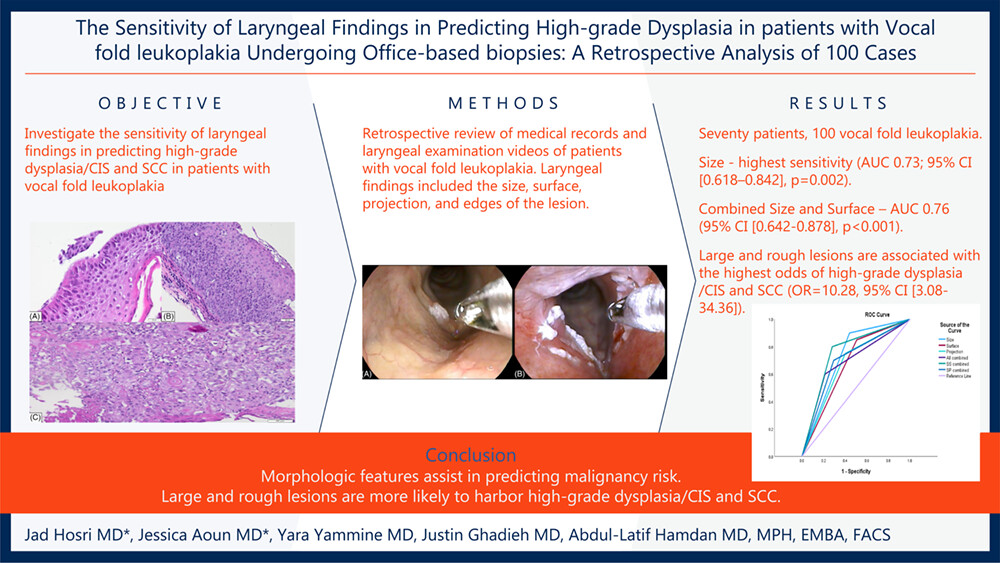
This article aims to investigate the sensitivity of laryngeal findings in predicting high-grade dysplasia/carcinoma in situ (CIS) and squamous cell carcinoma (SCC) in patients with vocal fold leukoplakia. The authors found that the morphologic features of vocal fold leukoplakia may assist the physician in predicting the risk of malignancy. Large and rough lesions were more likely to harbor high-grade dysplasia/CIS and SCC compared to small and smooth lesions.
Improvement of vertigo symptoms and acoustic power absorbance in cases with endolymphatic hydrops
- First Published: 08 January 2024
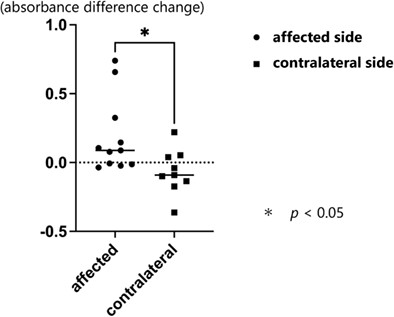
Evaluation of the longitudinal effects of middle ear pressure therapy (MEPT) for endolymphatic hydrops (EH) showed that MEPT improved vestibular symptoms but not necessarily the degree of EH. However, acoustic power absorbance improved in the affected ear with EH, providing useful information for evaluation.
Timely delivery of PORT for head and neck squamous cell carcinoma in a county hospital
- First Published: 29 December 2023
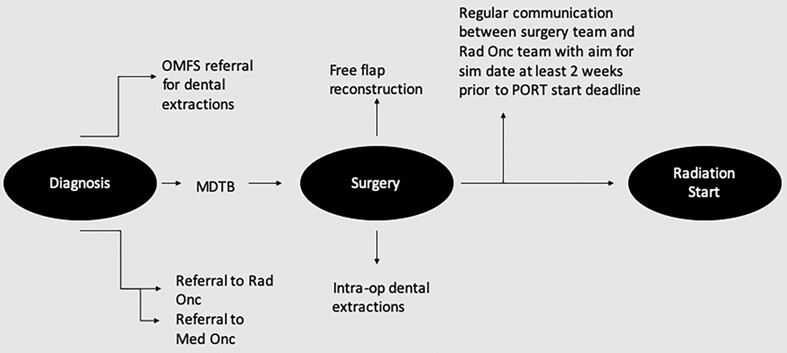
Delivery of timely post-operative radiation therapy (PORT) in compliance with the new head and neck cancer quality metric is attainable in even the most challenging patient populations treated at safety net hospitals as demonstrated by our work. Other institutions should adopt similar protocols to ensure timely PORT for their patients.
Factors associated with successful electrolarynx use after total laryngectomy, a multi-institutional study
- First Published: 23 January 2024
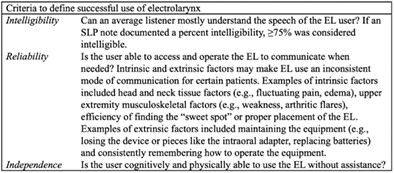
Despite being thought of as a relatively accessible mode of voice rehabilitation, literature demonstrates that there is significant variability in voice-related quality of life in total laryngectomy (TL) electrolarynx (EL) users, indicating a need to better identify patients at risk of being unsuccessful with the EL. This study examines clinicodemographic characteristics associated with successful EL use in TL patients. We found that successful EL use was associated with social support, post-laryngectomy swallow status, and pre-laryngectomy treatment history.
Role of conventional MD staging in modern era of hydrops MR imaging
- First Published: 15 January 2024
Impact of long-term nasal airflow deprivation on sinonasal structures and chronic rhinosinusitis in total laryngectomy patients
- First Published: 17 January 2024
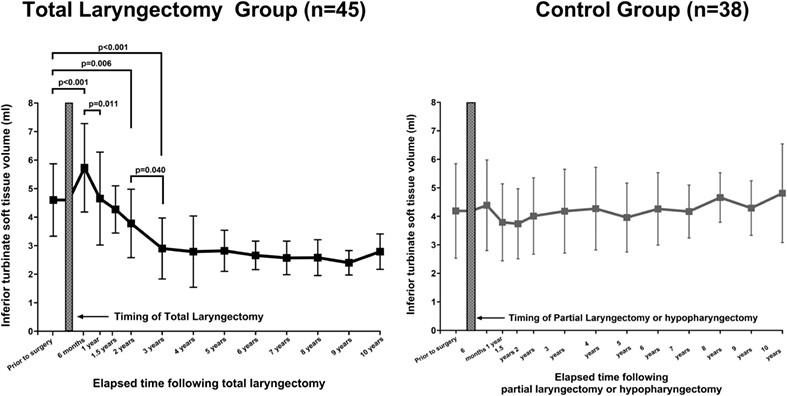
In this present study, the authors report no significant changes in the paranasal sinus volume as well as chronic rhinosinusitis development, whereas a significant reduction in the volume of the inferior turbinate mucosa was noticed in 45 total laryngectomy (TL) patients with a minimum follow-up period of 3 years following TL.
The effect of transfusion on survival in head and neck cancer after free tissue reconstruction
- First Published: 24 January 2024
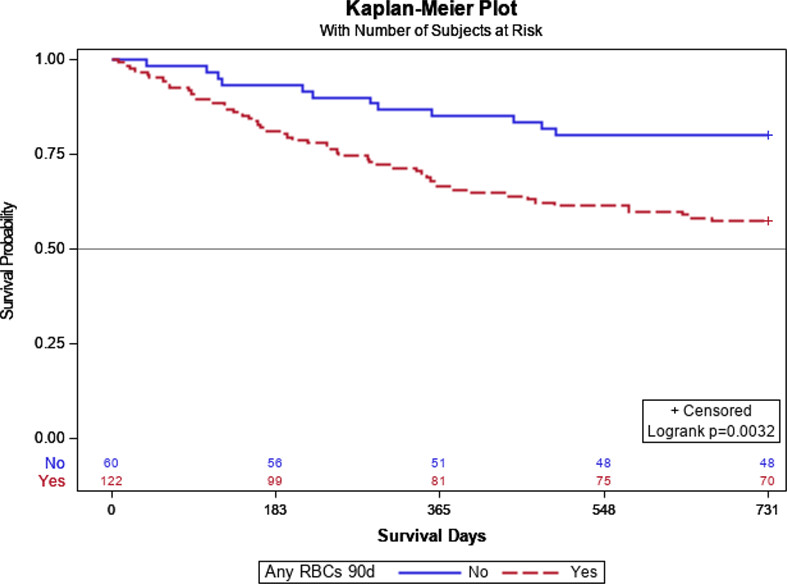
This study examines if perioperative blood transfusion (PBT) affects overall survival (OS) and recurrence-free survival (RFS) in HN cancer patients who undergo free tissue reconstruction. One hundred eighty-three patients were examined, and those who had packed red blood cell (PRBC) transfusion significantly differed from the non-transfused group. After controlling important variables, patients who received 3 or more units of PRBC in the perioperative period had significantly decreased OS.
Treatment outcome and prognostic factors of external auditory canal squamous cell carcinoma: A retrospective study in a tertiary center
- First Published: 19 January 2024
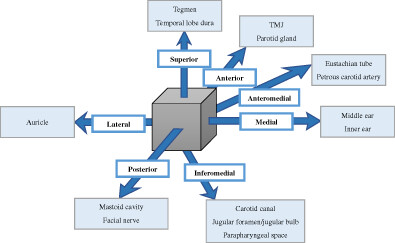
This study examined squamous cell carcinoma of the external auditory canal in 21 patients treated at a single tertiary center between 2009 and 2021. Early stage (T1 + T2) accounted for 38.1% of cases, and advanced stage (T3 + T4) accounted for 61.9%. The 5-year overall survival rate was 67.4%, with poor prognostic factors identified as tumor invasion to the otic capsule, sigmoid sinus, eustachian tube, and dura.
Inhaled fosamprenavir for laryngopharyngeal reflux: Toxicology and fluid dynamics modeling
- First Published: 24 January 2024
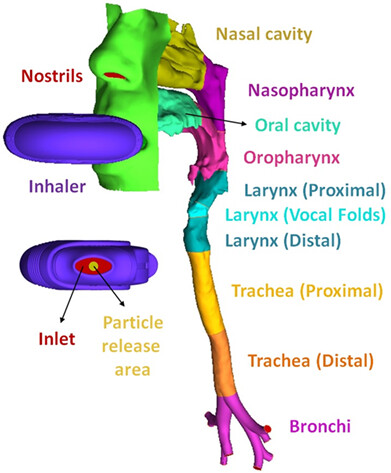
Fosamprenavir is a candidate pepsin-targeting therapy for laryngopharyngeal reflux (LPR). Local delivery by inhalation could reduce dosing and was shown effective at 1/20th of the oral dose. This study makes progress toward a fosamprenavir dry powder inhaler for LPR through toxicologic analysis and fluid dynamics modeling.
Effect of amniotic membrane/collagen scaffolds on laryngeal cartilage repair
- First Published: 30 January 2024
LETTERS TO THE EDITOR
Response to “A response to a single cadaver study assessing the efficacy of two commercially available devices for airway foreign body relief.”
- First Published: 19 February 2024
ORIGINAL RESEARCH
Proposal for standardized ultrasound analysis of the salivary glands: Part 1 submandibular gland
- First Published: 14 February 2024
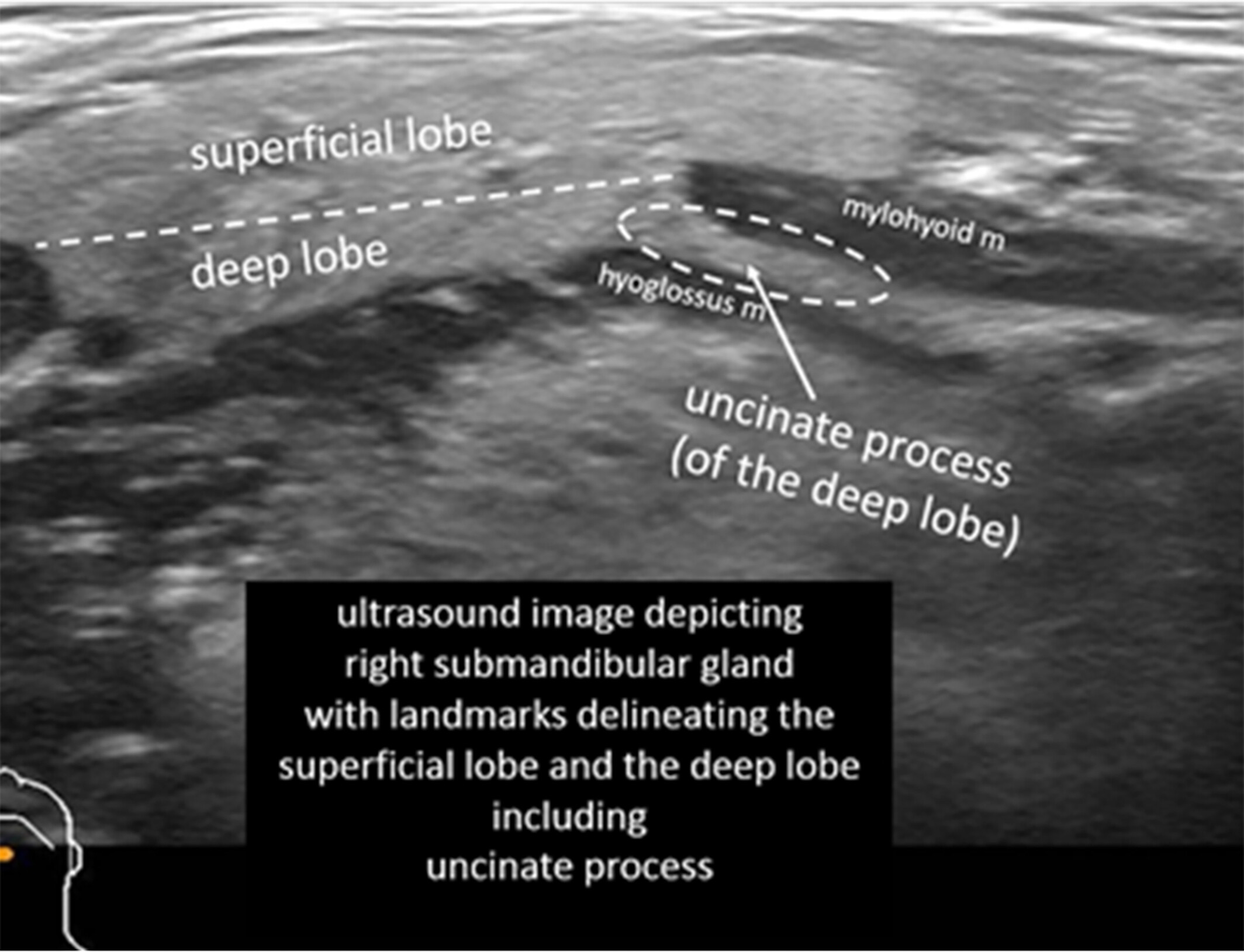
The AAO-HNS Salivary Gland Committee in collaboration with international experts proposes a standardized approach to submandibular gland ultrasound analysis focused on technique and nomenclature. Consensus regarding the naming of subsites within the submandibular gland is needed to improve communication about abnormalities detected and to direct the use of more sophisticated assessment schemes such as shear wave analysis targeted to specific regions. Consistency in this terminology should lead to improved reproducibility of findings.
Vitamin D supplementation in preventing the recurrence of benign paroxysmal positional vertigo
- First Published: 21 February 2024
A quantitative analysis of Twitter (“X”) trends in the discussion of rhinoplasty
- First Published: 21 February 2024
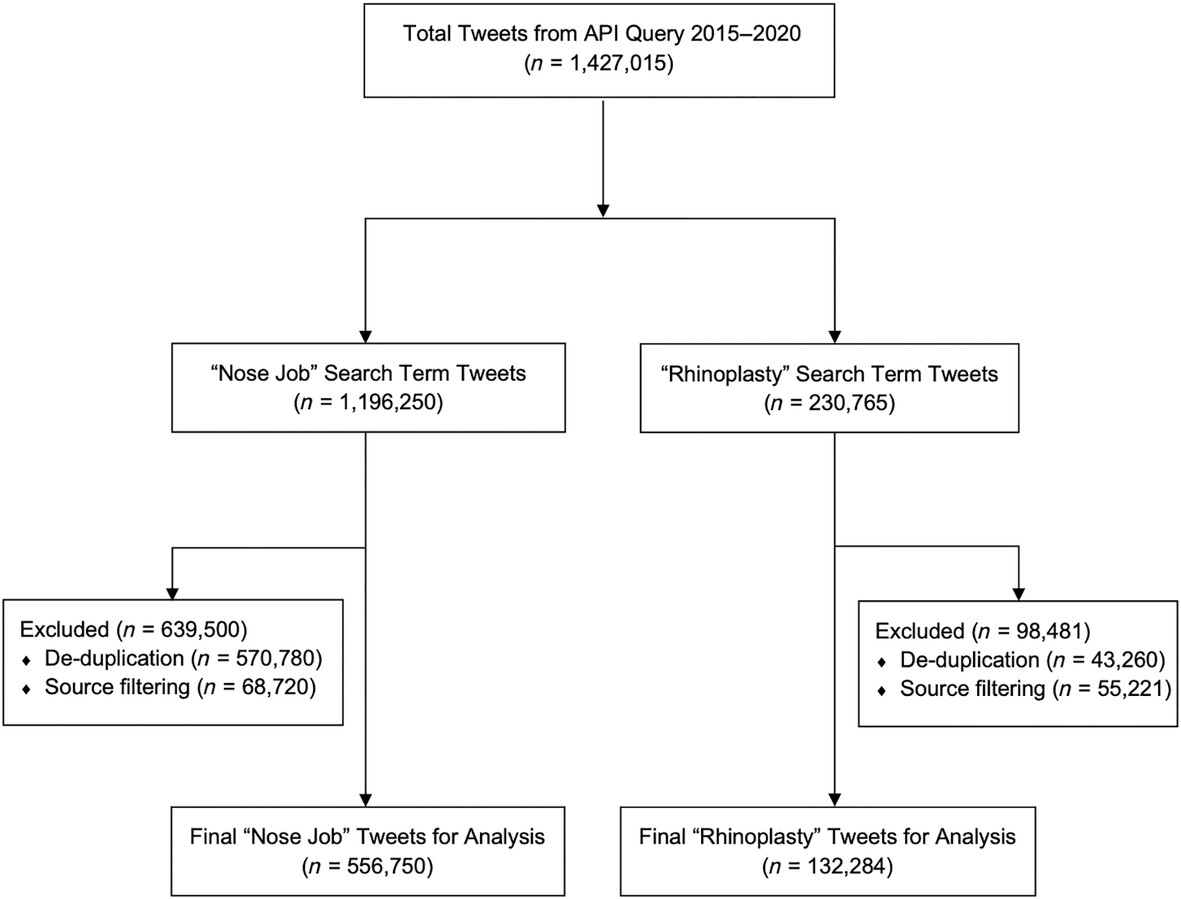
The discussion on Twitter regarding rhinoplasty has steadily increased over time, especially during summer and winter holiday months. General public discourse uses the term “nose job,” particularly when emotional context is elicited. There is a large digital contribution from surgeons and practices, particularly in the non-academic, private practice sector, utilizing Twitter for promotional and educational purposes.




